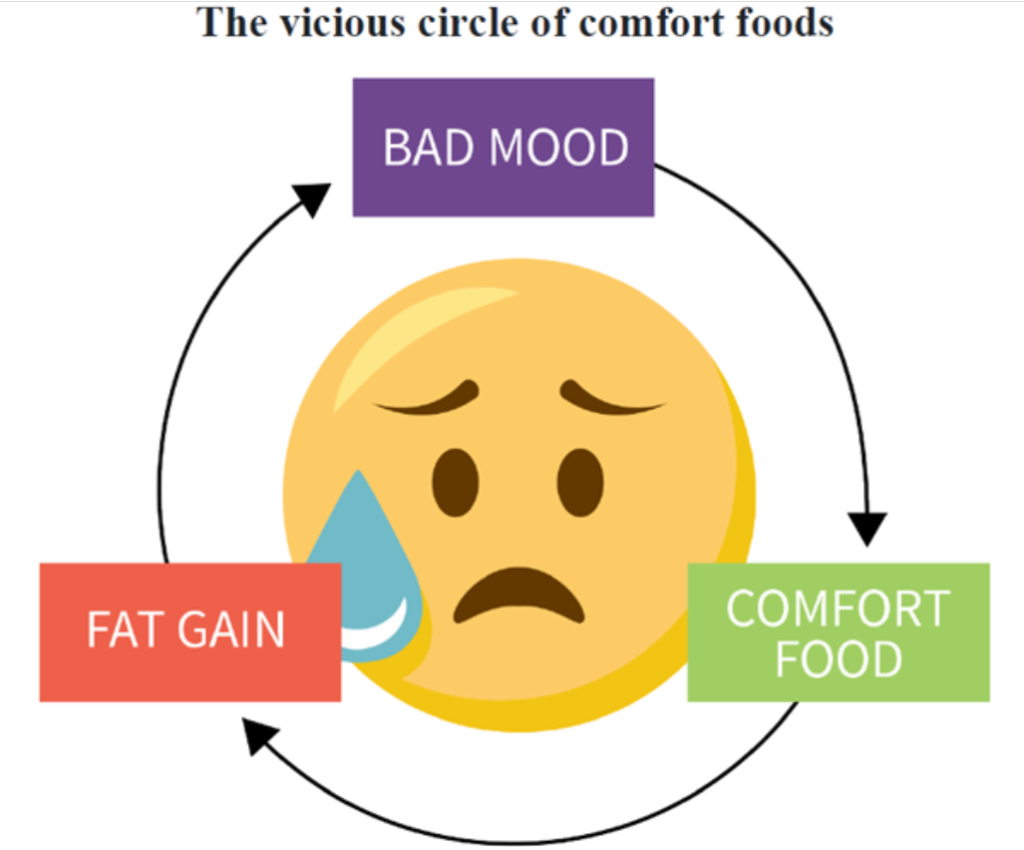Cortisol is a fight or flight hormone that is released every time you’re stressed by anything. Part of its purpose is to replenish your energy after exerting yourself through fighting or fleeing your perceived threat. Primitive humans certainly needed this energy boost after physically battling a wild animal, for example.
But generally, we modern humans respond mentally to stress, like worrying, not physically fighting or fleeing. And herein lies much of our health problems. Unlike our ancestors whose stressors had a more definitive beginning and ending (hunting and defending) today we have more continuous stress (traffic, work deadlines, kids’ schedules). We release cortisol into our systems far too often throughout the typical day with little break from our stress. Whether or not your stressor requires you to physically respond, cortisol is released, saturating your blood and tissues. Chronically elevated cortisol makes you vulnerable to developing higher blood pressure, diabetes, lowered immunity, and weight gain to name just a few disorders.
Stress hormones, including adrenaline, which gives you instant energy, along with corticotrophin releasing hormone (CRH) and cortisol, provide the biochemical energy you need to fight or flee from your stressors. Too often today’s response to stress is to sit and chew on our frustration and anger, without expending any of the calories that we would if we were physically fighting our way out of a wild animal hunt (as our ancestors did).
In optimum health, cortisol in normal levels has an anti-inflammatory effect in the body and impacts blood sugar, digestion, and immunity. There is simultaneously a hormonal (endocrine) and brain (neurological) response to stress.
In the days when a saber tooth tiger would jump out of hiding and attack, we had two choices with which to respond: Pick up a spear and fight, or run really fast and try to get away. This is what is known as the fight or flight response.
When the stressor appears (in this case, the tiger), cortisol shoots up to get you through the stressful situation. Dopamine, adrenaline, and noradrenaline levels go up, and these stimulating neurotransmitters motivate us, helping to bring us up to full speed—action mode. Not only does the flow of hormones and neurotransmitters shift, our blood supply also shifts. When under stress, we divert blood from non-critical functions like digestive tract organs and shunt it towards skeletal muscle so we can move. Even our sex hormone levels drop in response to increased production of stress hormones.
Cortisol is catabolic (meaning it breaks down) , so high levels can cause loss of muscle tissue. This is the beginning of imbalance in the body. Stress really is the root cause of disease.
When your cortisol levels remain high, your body thinks it is going through a hardship and that it may starve. It will begin to store more fat around the midsection for times of famine (a stress). This also increases insulin levels, and insulin is–you guessed it–the fat storage hormone.
High cortisol increases blood sugar to help get you through the stressful situation, but high blood sugar = Insulin hormone released in to blood = lowers blood sugar = energy dip = feeling hungry and tired = increased sugar cravings.
Physiology is working against you–high cortisol triggers high insulin and high blood sugar. When we do not use the glucose released in to the blood stream either by fighting or fleeing (like we used to do in primitive times) and just sit in front of our laptop or sit in our car cursing the traffic, then the excess glucose will be stored as fat in our body.
Once your body reaches a certain stress level, it does what it feels it needs to. In most cases, that means overeat. Why? Because your body thinks you’ve used calories to deal with your stress, even though you haven’t. it thinks you need to replenish those calories, even though you don’t.
Levels of “the stress hormone,” cortisol, rise during tension-filled times. This can turn your overeating into a habit. Because increased levels of the cortisol hormone also help cause higher insulin levels, your blood sugar drops and you crave sugary, fatty foods.
So instead of a salad or a banana, you’re more likely to reach for cookies or ice cream or some sweets. That’s why they’re called “comfort foods.”
Eating can be a source of solace and can lower stress. This happens, in part, because the body releases chemicals in response to food that might have a direct calming effect.
The bottom line? “More stress = More Cortisol (stress hormone) = Sugar/Glucose released into blood for energy = Insulin released into blood to manage blood sugar = Insulin lowers blood sugar (may lead to Low blood sugar) = Energy dip, feeling tired = Feeling hungry, angry = Mood Swings = Need to eat food = Higher appetite for junk food = More fat storage = Gain weight = Various Chronic Lifestyle Diseases and Disorders”

*Do read the Disclaimer
References:
Excerpts from various articles